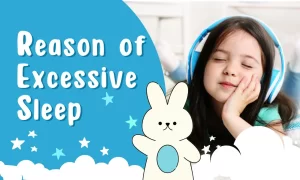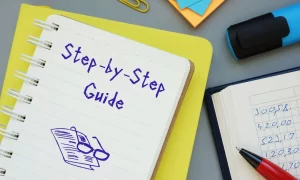Introduction
In today’s digital age, the accessibility of explicit content has led to a flow in quit pornography addiction. This article on the topic of how to quit pornography addiction explores the impact of this addiction on mental health, relationships, and society, while providing insights into the benefits of quitting.
Understanding the Impact of Pornography Addiction
Frequency of Pornography Addiction
The general availability of explicit content has contributed to the growing issue of pornography addiction. Millions struggle with the negative consequences of this habit, impacting their mental and emotional well-being.
Negative Effects on Mental Health
Pornography addiction is linked to various mental health issues, including anxiety, depression, and low self-esteem. Understanding these implications is crucial for individuals seeking a way out of this harmful cycle.
Societal Impact of Widespread Addiction
Beyond personal struggles, the societal impact of widespread pornography addiction is significant. It can contribute to distorted views of relationships, unhealthy attitudes towards sex, and an erosion of social values.
Recognizing the Signs of Pornography Addiction
(1) Behavioral Indicators of Addiction
Recognizing the symptoms of pornography addiction is the first step to recovery. Behavioral indicators, such as increased secrecy, isolation, and neglect of responsibilities, should not be ignored.
(2) Psychological Symptoms to Be Aware Of
Understanding the psychological symptoms associated with pornography addiction, such as mood swings, irritability, and poor concentration, helps individuals and their loved ones address the problem effectively.
(3) Impact on Relationships and Personal Life
Pornography addiction often leads to strained relationships and a decline in personal life satisfaction. Exploring these consequences encourages individuals to seek help and make positive changes.
The Benefits of Quit Pornography Addiction
(a) Improved Mental Health and Well-being
Quit pornography addiction can lead to improved mental health, reducing symptoms of anxiety and depression. Reclaiming control over one’s thoughts positively impacts overall well-being.
(b) Enhanced Interpersonal Relationships
Quit pornography addiction paves the way for healthier and more meaningful connections with others. Improved communication and emotional intimacy are common benefits.
(c) Boost in Self-esteem and Confidence
As individuals distance themselves from the damaging effects of pornography, they often experience a boost in self-esteem and confidence. This newfound self-assurance contributes to a more fulfilling life.
Strategies for How to Quit Pornography Addiction
(1) Acknowledging the Addiction
Acknowledging the presence of an addiction is a crucial first step. Acceptance allows individuals to move forward in their journey towards recovery.
(2) Seeking Professional Help
Professional counseling and therapy are valuable resources for those struggling with pornography addiction. Experts with specialized training can provide personalized guidance and support to meet individual needs.
(3) Implementing Self-help Techniques and Coping Mechanisms
Equipping oneself with self-help techniques and coping mechanisms is essential for overcoming addiction. These may include mindfulness practices, journaling, and adopting healthier habits.
Creating a Support System
The Importance of a Supportive Network
Having a supportive network is instrumental in the recovery process. Friends and family play a vital role in providing encouragement and understanding.
Involving Friends and Family in the Recovery Process
Involving loved ones in the recovery process strengthens the support system. Open communication fosters understanding and facilitates the healing journey.
Establishing Healthy Habits
Promoting Alternative Activities
Replacing the habit of consuming explicit content with healthier activities is crucial. Engaging in hobbies, exercise, and socializing helps redirect focus and energy.
Embracing a Healthy Lifestyle
Adopting a healthy lifestyle, including proper nutrition and regular exercise, supports overall well-being. Physical and mental health are interconnected, and positive habits contribute to addiction recovery.
Mindfulness and Meditation Techniques
Utilizing Mindfulness to Break the Addiction Cycle
Mindfulness techniques can help individuals break the cycle of addiction by promoting awareness of thoughts and feelings. This heightened awareness empowers individuals to make positive choices.
Incorporating Meditation for Mental Clarity and Focus
Meditation aids in mental clarity and focus, essential elements of the recovery process. Regular practice enhances self-control and emotional resilience.
Accountability and Tracking Progress
Setting Realistic Goals
Setting realistic goals is key to a successful recovery journey. Small, achievable milestones contribute to a sense of accomplishment and motivation.
Tracking Progress and Celebrating Achievements
Regularly tracking progress and celebrating achievements, no matter how small, reinforces positive behavior and encourages continued efforts towards recovery.
The Role of Professional Counseling
Seeking Therapy for Addiction Recovery
Professional counseling provides specialized guidance for how to quit pornography addiction. Various therapeutic approaches, such as cognitive-behavioral therapy, offer effective tools for managing and overcoming addiction.
Types of Therapy Suitable for Quitting Pornography Addiction
Different types of therapy, including individual and group therapy, offer unique benefits. Tailoring the approach to individual needs enhances the effectiveness of the recovery process.
The Impact on Relationships
Restoring Trust and Intimacy
Quitting pornography is often a catalyst for restoring trust and intimacy in relationships. Partners can work together to rebuild and strengthen their connection.
Communicating Openly with Partners
Open communication is vital in addressing the impact of pornography addiction on relationships. Honest conversations foster understanding and support between partners.
Addressing Relapses
Understanding That Relapses May Occur
Acknowledging the possibility of relapses is crucial for maintaining a realistic perspective. Learning from setbacks and adapting strategies enhances resilience in the face of challenges.
Developing Strategies to Bounce Back and Continue the Recovery Journey
Having strategies in place to bounce back from relapses is essential. Learning from setbacks and adjusting the approach contributes to long-term success in overcoming addiction.
Encouraging a Positive Mindset
Fostering a Positive Attitude Toward Recovery
Maintaining a positive attitude is a powerful tool in the recovery journey. Embracing a mindset focused on growth and progress facilitates lasting change.
Building Resilience to Overcome Challenges
Building resilience is integral to overcoming challenges on the path to recovery. Developing coping mechanisms and a resilient mindset empowers individuals to face difficulties with strength and determination.
Raising Awareness and Education
The Importance of Educating Others About the Dangers of Pornography Addiction
Raising awareness about the dangers of pornography addiction is essential for combating its prevalence. Education fosters a better understanding of the issue and encourages empathy and support.
Promoting a Healthier Attitude Towards Sexuality
Encouraging a healthier attitude towards sexuality is a key component of addressing the root causes of pornography addiction. Open conversations about healthy relationships and consent contribute to a positive cultural shift.
Community Support Groups
Joining Online or Local Support Groups
Participating in support groups, either online or locally, connects individuals with a community facing similar challenges. Sharing experiences and insights creates a sense of belonging and encouragement.
Sharing Experiences and Gaining Insights from Others
Sharing personal experiences within a supportive community provides valuable insights and encouragement. Learning from others’ journeys fosters a sense of camaraderie and mutual support.
Celebrating Milestones
Recognizing and Celebrating Achievements in the Recovery Process
Celebrating milestones, whether it’s a week, a month, or a year of recovery, reinforces positive behavior. Reflecting on achievements boosts confidence and motivation for the ongoing journey.
Conclusion
Quit pornography addiction present challenges, yet the journey is ultimately rewarding. By understanding the impact, recognizing signs, and implementing effective strategies, individuals can break free from the shackles of addiction. Embracing a positive mindset, seeking professional help, and fostering a supportive network are integral to a successful recovery.
FAQs
(1) Is it common to experience withdrawal symptoms when quitting pornography addiction?
Yes, withdrawal symptoms are common and may include anxiety, irritability, and cravings. These symptoms typically subside over time.
(2) How long does it take to see the benefits of quitting pornography?
The timeline varies for each individual. Individuals may witness positive transformations in a matter of weeks, while for others, the process may extend over a longer duration. Patience and perseverance are key.
(3) Can professional counseling really make a difference in quit pornography addiction?
Yes, professional counseling provides tailored strategies and support, increasing the likelihood of successful recovery.
(4) Are there specific self-help techniques that work best for quitting pornography addiction?
Different techniques work for different people. Experimenting with mindfulness, journaling, and healthy habits can help identify what works best for an individual.
(5) How can I support a friend or family member to quit pornography addiction?
Offer non-judgmental support, encourage them to seek professional help, and educate yourself about addiction to better understand their challenges.















